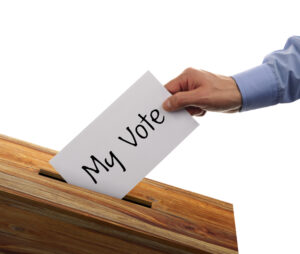From Here to Serenity: How Public Choice Makes Me Less Cynical
By Art Carden


After James M. Buchanan won the Nobel Prize, some people suggested public choice was too obvious for a Nobel. To others, it was wrong. Some said it was both. Others claimed that public choice is immoral: after all, Buchanan wrote from the “homely observation” that people respond to incentives and pursue their interests in the political arena just as they do in the marketplace. He based his analysis on realistic beliefs about how people actually act rather than lofty visions about how they could. Politics, his critics argued, should manifest our best and deepest moral inclinations. It’s where we come together to determine what is in the interests of all. The marketplace is where we decide what is in the interests of each and then fight about it. Finally, assuming people vote selfishly might make people vote selfishly, to the detriment of all of us. Is this not deeply cynical, perhaps even immoral, insofar as it assumes we are capable of nothing more than greed and insofar as it encourages us to be greedy?
Maybe, but I think public choice leads me to a less cynical worldview. Its postulates—methodological individualism, rational choice, and politics-as-exchange—allow us to explain many phenomena by looking at and analyzing people’s incentives and constraints. In other words, we can explain how many political pathologies are the unintended consequences of good people responding to bad incentives emanating from institutions that unintentionally suppress valuable social knowledge.
No doubt, there is a lot in the world we can explain as the bumbling of fools or the machinations of knaves. Unfortunately, that is a bit too easy, and it leads to policy conclusions that are too easy: “Everything would be OK if we just voted the bums out and replaced them with cultivated and intelligent people of principle.” I think it is more informative to assume people are reasonably intelligent and decent and then see how their intelligence and decency metastasize into organizations and policies that make us worse off.
It’s convenient to assume people maximize their lifetime consumption. We can define “consumption” broadly without really changing our results. I’ve read a great definition of consumption: you consume whenever you extinguish a potential service without producing a stream of future services. You can’t eat the same sandwich twice. The two hours you spend watching a movie are gone forever. Driving to the grocery store burns gas you can never use again.
Similar logic applies to a pure altruist who wants only to increase another’s consumption. Your ward cannot eat the same sandwich twice. The two hours you spend shopping for the Christmas toy drive are gone forever. So is the gas you burn driving to the mall. Economics (and public choice) does not judge your intentions. They are yours. Economics does say you do more of things that get cheaper and less of things that get more expensive.
Consider the assumption that people are rational and that they make rational choices. However, this is not a theory of how the mind works: it suggests that they change their behavior in response to their incentives. Ronald Coase offers an interesting example in his introduction to The Firm, the Market, and the Law (1988). People might dash across a busy street to get a sandwich. Whether the risk is psychologically “rational” is not the economic question. Economics says that if traffic gets heavier, we will see fewer attempts to dash across the street.
Meanwhile, if traffic gets lighter, we will see more. Similarly, stricter policing of jaywalking will mean fewer dashes across a busy street, while laxer policing of jaywalking will give us more. That is what we mean when we talk about “rational choice”: people are comparing costs and benefits, even if only implicitly, and when we change costs and benefits, we change people’s behavior.
Public choice is also methodologically individualistic. Social phenomena emerge from patterns of individual decisions in response to changing incentives, information, and constraints. Therefore, the individual is the unit of analysis (Buchanan notes that this is because individuals are the irreducible units of consciousness. People dashing across the street to get sandwiches act individually, not collectively, and changing their incentives will change their behavior. Suppose we want to reduce the number of people getting splattered crossing busy intersections. We can make drivers pay more when they hit people so they drive more carefully. We can punish jaywalkers so that fewer people dash across the street. These are not free lunches: what is called the “Peltzman Effect” predicts that people will make more reckless street crossings if it gets safer.
When we apply these tools to the issues public choice scholars study—elections, legislatures, bureaucracies, and constitutions—we get a lot of understanding without having to appeal to moral failings like avarice, knavery, or stupidity. Consider elections. We get a lot of mileage from assuming candidates want to be elected and stay elected. Getting elected by a simple majority requires getting just 50%+1 of the votes, and it is the force behind what we call the median voter theorem—namely, that public policies will tend to reflect the preferences of the median voter. Imagine you have voters evenly spread out over an ideological spectrum from left to right, and you have two candidates, Lyndon Left and Ronald Right, who start at the ideological extremes. People vote for the candidate closest to their views, so everyone left of center votes for Lyndon Left, everyone right of center votes for Ronald Right, and the median voter flips a coin.
Lyndon Left could win the election by moderating his position and moving just a bit farther right. If Ronald Right stays put on the extreme right, the median voter now votes for Lyndon Left because he’s a bit closer to his ideal point. Ronald Right, of course, is no fool and tries to capture the median voter by taking an even bigger move toward the center. This happens until the candidates converge in the middle, fighting to curry the favor of the median voter. This does not require knavery or spinelessness, necessarily, just a desire to win and mindfulness of one’s incentives.
Incentives also explain why voters tend not to know very much, why people vote straight tickets, and why politicians lie all the time. Information is costly, and it is pretty rare that doing all the work to become an informed voter will make much of a difference. Someone could vote well by making dedicated studies of philosophy, natural science, and social science to develop an epistemically justified true belief about what is actually in the public interest. A single vote, however, is extremely unlikely to be decisive. It is common for people to point out that you are more likely to die in a car accident driving to the polls than you are to cast the decisive ballot in a US Presidential election. It also helps explain politicians’ flip-flops on issues, and why it seems like they lie a lot. Scrupulously monitoring people for honesty and consistency takes a lot of time and energy. On the other hand, responding positively to a catchy slogan (“yes we can,” “I’m with her,” “Make America Great Again”) is emotionally satisfying and super-easy.
Every election cycle, you hear people exhorting you to vote for a candidate rather than a party. It makes a certain amount of intuitive sense, and it seems like voting for the “best” person for the job irrespective of party affiliation is a laudable goal. Nonetheless, many people vote straight ticket and probably cannot name all the down-ballot candidates. This makes sense for a couple of reasons. First, information is costly and the likelihood that your vote will swing an election is so tiny that getting informed means consuming a lot of time and energy to get an outcome identical to what would have happened had you not gone to the trouble. Second, people are going to vote with their party almost all the time, so if you generally lean Democrat and the democratic primary is between Carla Corruption and Victoria Virtue, who gets the nomination doesn’t really matter that much because they’re going to vote the party line pretty much no matter what. Incidentally, this is one of the reasons the presidency matters as much as it does for state and local elections. Paula Progressive running for County Commissioner as a Democrat may not have a lot of name recognition, but she stands to benefit considerably if Lyndon Left is able to inspire many people to vote straight-ticket Democrat.
I also have an easier time tolerating lobbying and legislator buy-offs. We think about “lobbying” being what happens when a shady character working for an oil company hands a suitcase full of cash to a politician in exchange for permission to drill for oil in Teddy Roosevelt’s head. The waste is more mundane, and it need not be corrupt per se. In his book Political Capitalism,1 Randall Holcombe discusses people’s unarticulated understanding of what it takes to play the game in Washington. Public choice has helped me understand that the problem is the institutions, not the people operating within them. We are not going to make things better by throwing the bums out, but by writing rules that work whether they are implemented by devils or angels.
I also understand distributive politics in a new way, and once again, it’s because of the incentives. It is pretty easy to get support when you say “I’m going to take money from Jeff Bezos and give it to you,” and indeed, we’re all very good at cooking up stories about why the world would be a better place if we had the money rather than Bezos. At first, it seems strange that people are spending as much time and energy as they are trying to get their hands on Bezos’ money without feeling like they need to really offer him anything in return (his head, perhaps, if people making guillotine jokes online are to be believed). Once again, it’s nice to think we would do well to tell people not to try to take other people’s stuff, but it’s predictable that they will when it’s cheap and will not when it’s expensive.
For more on these topics, see
- Public Choice, by William F. Sughart II. Concise Encyclopedia of Economics.
 Don Boudreaux on Public Choice. EconTalk.
Don Boudreaux on Public Choice. EconTalk. Bryan Caplan on the Myth of the Rational Vote. EconTalk.
Bryan Caplan on the Myth of the Rational Vote. EconTalk.
Public choice theory—the economic theory of politics, or a body of work that analyzes political decision-making with the same tools we use to study market decision-making—has been derided as cynical if not outright immoral. Such criticism sells it short, though, and it fails to recognize the subtlety of public choice assumptions and analysis. Anyone can tell a story about how things would be better if people were not fools or knaves. What makes public choice interesting, however, is that it does not rely on assumptions of foolishness or knavery to arrive at its conclusions. It only needs to posit that people respond to incentives. The rest, as the Talmudic scholar Hillel might say, is commentary.
Footnotes
[1] See my review of Randall Holcombe’s Political Capitalism, “The Aristocracy of Pull.”. American Institute for Economic Research, Sep. 23, 2020.
*Art Carden is Assistant Professor of Economics at Samford University in Birmingham, AL, a Senior Research Fellow with the Institute for Faith, Work, and Economics in McLean, VA, a Research Fellow with the Independent Institute in Oakland, CA, and a Senior Fellow with the Beacon Center of Tennessee.
For more articles by Art Carden, see the Archive.
